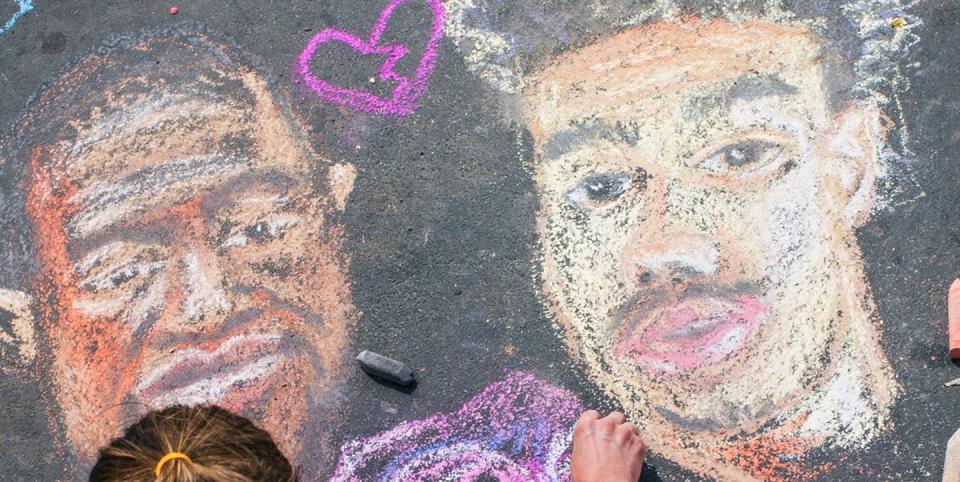The Police Say Daunte Wright’s Death Was an Accident. I Think It Was Business as Usual

Phoebe Robinson is a stand-up comedian, New York Times best-selling writer, actress, and host of the new show Doing the Most With Phoebe Robinson on Comedy Central. Last week, she also published a powerful statement about Daunte Wright’s death and the Instagram post went viral. Below, she explains why framing his death as an accident is part of a larger problem.
Look up “accident” in the dictionary, and you’ll find these definitions: “an unforeseen and unplanned event or circumstance” and “lack of intention or necessity.” There are very specific situations that I’d file under “accident.” Spilling a glass of milk all over the kitchen table is an accident. Shit-talking someone in the wrong group text chain is an accident.
Killing someone is not.
There’s a level of carelessness that comes with calling Daunte Wright’s death an accident, and it crystalizes the idea that Black lives are seen as expendable, something you can throw away. The notion that killing a Black person can be summed up as an accident is disturbing; it allows for there to be a lack of responsibility.
The viral videos of police officers killing Black people make their way through Instagram and Twitter under the notion that people are “spreading awareness” and that we “need to see the videos” so that there can be some form of justice. But I don’t need a video to prove to me that a police officer killed a Black person—I am well aware of the violence that we have to deal with on a day-to-day basis. And these clips that highlight Black death reinforce the narrative of Blackness equaling trauma or Blackness equaling suffering. For non-Black people, it makes it seem like this is what being Black means—that we’re fully defined by systemic racism and violence against us. It’s flattening our identity, making it easier for people to continue to dehumanize Black people, and as a result, kill them. And so the cycle continues.
If we’re going to reckon with the police, if we’re going to talk about systemic racism, we need to get to the root of the problem. The fact that Kim Potter and Derek Chauvin and Darren Wilson were all gripped with the exact same instinct to put this Black person down, that they have to incapacitate them, is precisely the issue at hand.
When you look at the excuses the police officers in these situations offer to help clear their name, they’re always attached to this idea of innocence. It’s this thought that, I’m an adult in every other aspect, but when it comes to Black people, this is all new to me. I had no idea. People brush off the fact that anti-Black racism is embedded within the fabric of our country, and choose to ignore the fact that slave patrols were one of the earliest forms of policing. To deny both of those things means that (1) you’re denying history, (2) you’re going to repeat it, and (3) we’re not going to make any progress whatsoever.
This country has to own up to its past and its present—the fact that white mass shooters can kill dozens of people and still be taken into custody alive says something. We have to stop saying that this isn’t what America is and start saying this is what America is, but it doesn’t have to be. And the excuses aren’t going to cut it anymore—everyone needs to play catch up at this point and figure it out. Look at your job, look at your schools, look at your neighborhood, and think of one, two, three things that you can personally do to make things better.
And I don't mean “doing the work” internally, buying some anti-racism books, and highlighting some pages. Eradicating systemic racism isn’t a personal pet project—from recommending people of color for senior-level job positions to voting for politicians who are working to fund public schools and affordable health care to setting up a recurring donation to orgs that are doing the work on the ground, there’s so many simple ways that people can go about this in a way that isn’t superficial. And you can do it privately too. We don’t need to be documented on social media. If I’m being honest, I probably don’t give a shit. Just do it in real life—you don’t need the Likes on it. Just do the work.
You Might Also Like

